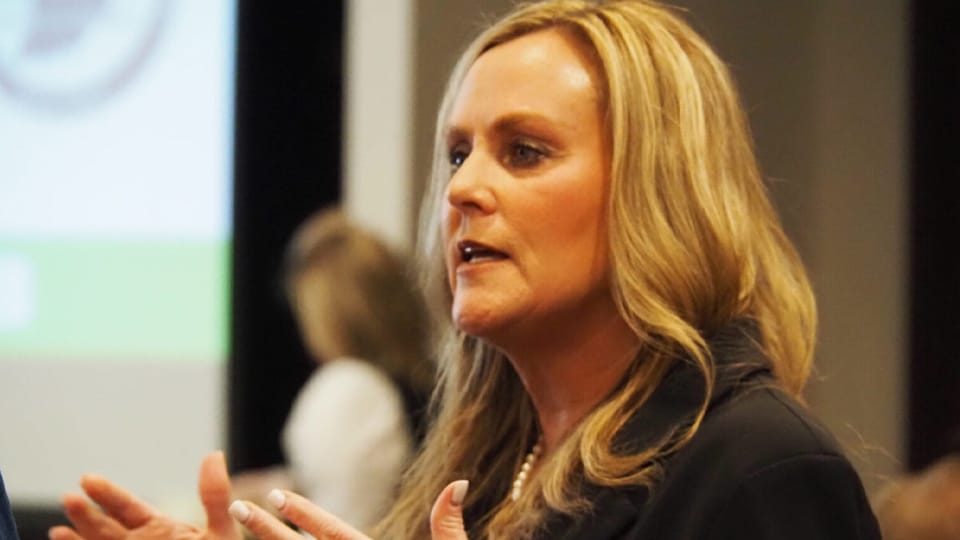McCormick lays out marijuana legalization plan
Subscriber Benefit
As a subscriber you can listen to articles at work, in the car, or while you work out. Subscribe Now
If elected governor, Democrat Jennifer McCormick would work to establish a medical marijuana industry before transitioning to full adult-use cannabis, she said Thursday.
“Across the state, Terry (Goodin) and I are hearing Hoosiers who are ready for Indiana to take this step,” she said in a press conference with reporters. “We’re on an island. All the states around us are … at some level, legalizing marijuana, and have benefited in several ways. And so it is time for Indiana to join in on this policy.”
Three of Indiana’s four neighbors have legalized recreational marijuana—Illinois, Michigan and Ohio—while Kentucky has legalized medical marijuana.
McCormick and running mate Goodin want to start with a “thoughtful” commission to hammer out how legalization would work in Indiana. McCormick asserted that the issue isn’t partisan, as many people have changed their minds on the topic.
It’s the third week in a row that McCormick has laid out a proposal on a specific topic; she has also released plans on education and ethics reform.
GOP gubernatorial nominee Mike Braun told IPBS News in April that he expects some form of legalization in every state within the next decade.
“My key thing would be to get with law enforcement to see what they think, because they’re the ones that are gonna have to spend the time, put their lives on the line,” Braun said.
Libertarian Donald Rainwater, who is also running for governor, supports both medical and recreational legalization.
Democrats and some Republicans have been pushing the General Assembly to legalize for several sessions but many conservative Republicans remain opposed. The Indiana Chamber of Commerce and some law enforcement groups have expressed opposition.
Republicans control both chambers of the legislature.
How it would work
McCormick’s plan begins with creation of an Indiana Cannabis Commission to oversee the legal cannabis industry, including regulation, licensing, and ensuring compliance with safety standards. Her campaign said the independent body would help Indiana develop a well-regulated cannabis market, protecting Hoosiers and ensuring transparency as the state transitions to full legalization.
McCormick said the state should establish a medical marijuana industry first and learn from successes or barriers before legalizing recreational marijuana. She noted many Americans use marijuana to help with anxiety, terminal illness and mental health. She said there is no timeline for the process.
The plan also addresses the issue of unregulated hemp-derived THC products currently flooding Indiana’s gas stations and smoke shops. By regulating these substances, the campaign said, the state would protect consumers and ensure that cannabis products meet safety standards.
And then there’s the money. McCormick said one estimate is that legalization could generate $172 million annually for Indiana.
She would prefer the money make its way to local government, saying it’s not a lot of money in terms of the state’s $22 billion annual budget.
“We have heard from many towns and cities and schools and libraries and law enforcement that they are in need of dollars,” McCormick said. “We also could use some of those dollars in that mental health space and also combating illegal…substance abuse.”
Some states have seen rising levels of addiction and issues with impaired driving, which she acknowledged. But she said Indiana can take lessons from other states that have already charted a path.
“Learning from others is incredibly important…those who are around us have an established system. It’s here, so they’re already dealing with many of the concerns and issues that we would be talking about in the commission,” McCormick said.
She added that marijuana usage already exists in Indiana–“We’re just not receiving the revenue for that.”
The Indiana Capital Chronicle is an independent, not-for-profit news organization that covers state government, policy and elections.
